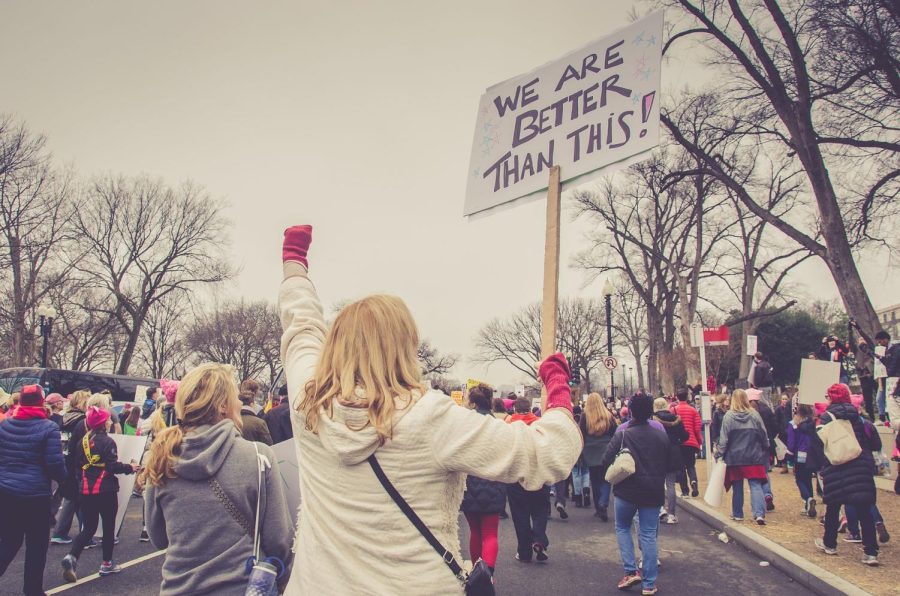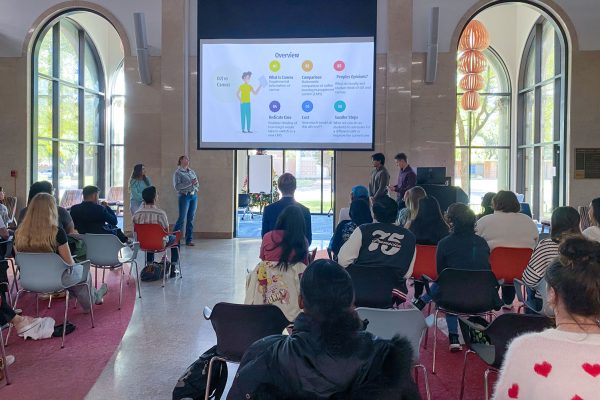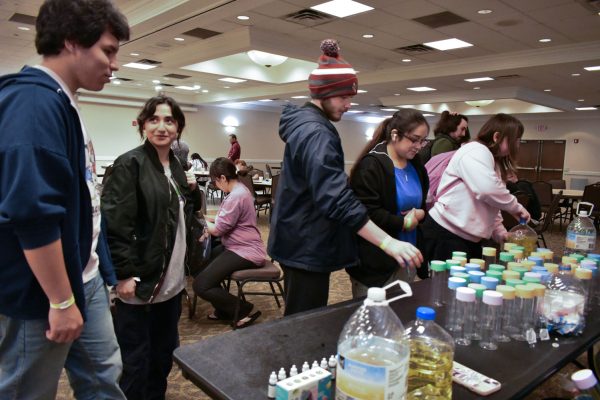Caring about politics is hard, but doable – and worth it
America’s political landscape is pushing persons to either extremism or burnout, 2022. Photo courtesy of Stocksnap/Pixabay.
It’s hard to care about politics sometimes – okay, a lot of the time. It’s much easier to look at how divided the political landscape in America is today, and simply turn away with a grimace. The center of politics in America is being ostracized as both left and right push further and further away from the moderate and on to more extreme positions. People who like to argue and debate and fight for every single issue, are at their prime in today’s political climate. But that leaves many of the rest of us – equally concerned about America, and with strongly-held but less extreme beliefs – stuck in the middle.
It’s easy to feel exhausted by trying to voice an opinion as loud or louder than everyone else at school, at work or on social media. Living in a deep red or blue state can make your voice and vote feel worthless, but that doesn’t mean it isn’t worthwhile to share your thoughts; the free circulation of ideas means our system still has hope, despite how hopelessly divided it may seem. It’s critical that Americans, especially those who don’t cling to one extreme or the other of the political spectrum, continue to voice their ideas and opinions civilly. If you feel about ready to give up on politics completely, don’t. Here are a few ways to avoid frustration in politics, make your voice count and model civility.
Pick your battles
You don’t have to argue with everyone who disagrees with you. I know – they’re wrong, and you’re certain of it. That doesn’t mean you can change their mind though – nor does it mean you should feel pressured to try. Instead, think about the things that are important to you. Defend your strongest beliefs the most, and devote less energy to things that don’t matter as much to you. Focusing more on your deepest beliefs gives you more time to educate yourself on those issues, and keeps you from feeling drained or burned out arguing less important things. It also lends more weight to the things you care about because your argument isn’t diluted by other arguments about lesser issues.
Be open-minded
Not every political discussion has to be an argument. If you haven’t researched an issue and don’t have a strong belief, don’t feel the need to argue about it; discuss and share your opinion, but don’t treat it as a life-and-death battle for the soul of the nation. If you’re talking to someone and they share an opinion that isn’t morally objectionable, hear them out as long as they’re civil. Ask questions and share your thoughts, but accept that you don’t have to change their mind to your point of view.
Remember the golden rule
There are many variations, from “do unto others as you would have them do unto you” to “treat others how you want to be treated.” However you choose to say it, this rule will make your experience of politics more civil and less stressful. Engage others respectfully and listen to their ideas, and expect that they do the same. If they don’t, leave the conversation – there’s nothing to be gained by staying in it. But don’t let those experiences deter you from being civil and leading by example.
Don’t be consumed
A 24/7 stream of bad news and fearmongering is available to any American who wants it. Getting caught up in the news cycle, particularly from news sources that paint a certain side of the political spectrum in a negative light, can lead to either political extremism or burnout. Limiting your media intake to only what you feel is necessary to stay informed can combat this. Listening to less commentary and focusing more on forming your own opinions can also help avoid falling into the doom-and-gloom news trap. Overall, it makes it easier to keep from making politics too large of an influence in your life. In turn, this helps you stay level-headed, engaged and less stressed when dealing with politics.
Vote
Voting is the single most important thing you can do. You don’t have to share your votes with anyone, you don’t have to vote in every single election and most importantly you don’t have to stand by and watch policies you disagree with go into effect. If you live in a state where one party or the other dominates, casting your vote can feel meaningless. But if you vote in opposition to the majority, it shows up in final election tallies and might inspire someone else to do the same. More resources might be spent in the next election to make your position a suddenly viable one to vote for. If you still can’t hold your nose and vote for one of two candidates that you dislike, consider writing in a name.
The important thing to remember, in voting and politics overall, is that even if you don’t shout the loudest, your vote and opinion carry as much value as anyone else’s. It’s easy to be discouraged by the polarization and lack of civility, but change won’t come from the people who are polarized and uncivil. It will come from people who lead by example, vote their beliefs, and refuse to be dragged into pointless arguments. It isn’t too late for you to make a difference, however small, in politics, and America will be better for it if you do.

Hello, and thanks for stopping by! My name is Cecil Witherspoon, and I'm the new editor-in-chief of the Wichitan. I'm a mass communication senior with...












